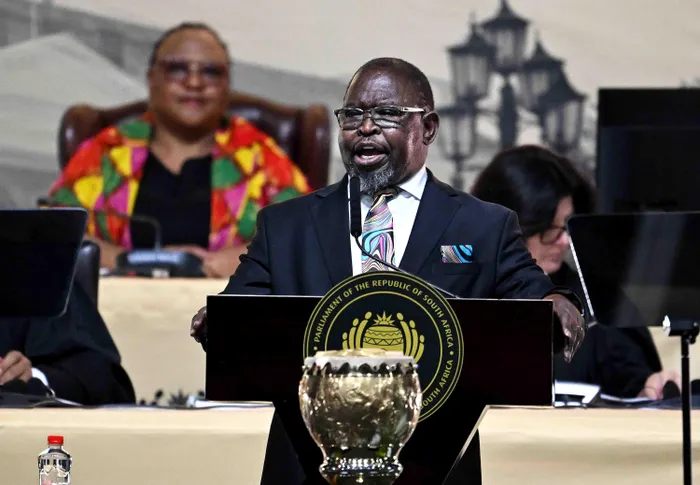
Supporting low-income families amid fiscal constraints in the upcoming budget"
Image: File
Analysts have emphasised the need for the National Treasury to allocate more resources toward improving service delivery, complemented by stronger accountability measures to ensure efficiency and transparency as the Finance Minister prepares to present the ‘3.0 Budget’ for the 2025-26 financial year.
Kabelo Moutloatse, a tax accounting specialist at Latita Africa, expressed concern over possible adjustments to business taxes in the revised budget.
“Any increase in business taxes could undermine foreign investment confidence and reduce the return on investment (ROI),” he explained.
He said businesses might raise prices or cut costs to protect profits.
He argued that increasing prices could lead to decreased consumer spending over time, affecting overall turnover.
“Conversely, cost-cutting measures—such as layoffs—could result in job losses, especially for the unemployed and low-income workers. These potential outcomes highlight the importance of carefully balancing fiscal policy to support economic growth and employment.”
Moutloatse said that another pressing issue is how the government plans to support low-income families, emphasising that with the reversal of the VAT increase, the government will need to find alternative revenue sources to cover the projected shortfall.
Although the specifics of the revised budget have not yet been released, measures to promote economic inclusion are expected to be included.
“Fostering and nurturing small private enterprises is essential for creating jobs and stimulating economic growth,” he noted.
He emphasised that the government should focus on empowering small businesses, key employment drivers, rather than relying solely on direct government employment initiatives.
A longstanding concern is the R1 million VAT registration threshold, which has existed for over a decade.
“For many new businesses, reaching R1 million in revenue within 12 months triggers VAT registration,” Moutloatse explained.
He added that many small vendors operate informally to avoid tax compliance fears, although they often benefit from lower tax rates available to qualifying small businesses.
He stressed that new tax policies should be practical, not just legal formalities, to support small entrepreneurs genuinely.
“This requires more targeted resource allocation and effective accountability measures,” he said.
According to Moutloatse, potential strategies include expanding affordable youth skills development programs and adopting a realistic approach to job creation, focusing on empowering small private businesses rather than short-term government projects alone.
He argued that such measures could provide more sustainable pathways out of poverty.
Economist Dawie Roodt said the question was whether there will be a further reduction in the increase on the various social grants and the salary increase for civil servants.
“If you can't cut back on spending on people, then you cut back on spending on capital. Although he is going to say he is going to increase spending on A, B and C, that is probably not going to happen because we simply do not have the money.
thabo.makwakwa@inl.co.za
IOL Politics
Related Topics: